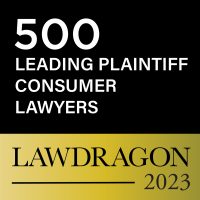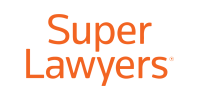The Supreme Court agreed last month to address whether district courts must accept the Federal Communications Commission’s (FCC) interpretations of the Telephone Consumer Protection Act (TCPA)—the statute that protects consumers from receiving marketing solicitations via automated calls, text messages, and faxes.
The case, Carlton & Harris Chiropractic, Inc. v. PDR Network, LLC, could affect TCPA class action litigation. It also may be a sign that the Supreme Court intends to chart a new course when it comes to judicial deference to agencies.
Chevron and the Hobbs Act
Carlton & Harris involves the interplay between the Supreme Court’s landmark 1984 decision in Chevron U.S.A., Inc. v. Natural Resources Defense Council, Inc. and the Administrative Orders Review Act—commonly known as the Hobbs Act.
Chevron instructs federal courts on what to do when a litigant contests a federal agency’s interpretation of a statute. Under Chevron, a court first considers whether the statute’s meaning is unambiguous. If so, its clear meaning controls. If the statute is ambiguous, however, the court must apply the agency’s reasonable interpretation of the statute even if the court would interpret it differently. While deferential, Chevron permits the court to reject an agency’s interpretation in some situations.
The Hobbs Act, for its part, grants the federal appellate courts exclusive jurisdiction to hear challenges to the FCC’s final orders. Although the existence of the Hobbs Act suggests that district courts should defer to the FCC’s interpretations of the TCPA, it is unclear whether the Hobbs Act precludes district courts from conducting their own Chevron analysis.
Carlton & Harris Chiropractic, Inc.
After receiving an unsolicited fax, the plaintiff in Carlton & Harris sued the defendant under the TCPA. The defendant argued that the faxes didn’t violate the TCPA because the fax offered a free product. In response, the plaintiff pointed to a 2006 FCC rule stating that unsolicited faxes promoting free goods or services still violate the TCPA.
The district court sided with the defendant. The court dismissed the case after concluding that, under Chevron, it wasn’t required to defer to the FCC’s interpretation of an ambiguous statute.
The Fourth Circuit disagreed, ruling that the district court had erred by conducting a Chevron analysis because the Hobbs Act deprived it of jurisdiction to consider whether the FCC’s interpretation was valid.
Significance of Carlton & Harris to Class Action Litigation
The Supreme Court’s decision in Carlton & Harris could open the door to new arguments in consumer protection litigation under the TCPA.
Earlier this year, in response to various federal appellate decisions, the FCC issued public notices seeking comments regarding several of the terms that bear on a defendant’s liability under the TCPA—including “automatic telephone dialing system.” In its forthcoming decision, the Supreme Court may allow TCPA litigants to challenge this FCC guidance at the trial court level.
The Court appears poised to address not just whether district courts must defer to the FCC’s statutory interpretations, but also whether a Chevron analysis is warranted. With some judges and commentators having criticized Chevron on separation of powers grounds, Carlton & Harris may have implications well beyond the TCPA context.
Our Commitment to Excellence
Girard Sharp LLP represents consumers, investors, and institutions in class actions and other complex litigation nationwide. Our class action lawyers have obtained multimillion-dollar recoveries for victims of unfair and deceptive practices in antitrust, financial fraud, and consumer protection matters against some of the country’s largest corporations (including Raymond James, John Hancock, Sears, Yahoo, and JP Morgan Chase). Girard Sharp LLP has earned top-tier rankings from U.S. News & World Report for Securities and Class Action Litigation and was selected as a 2018 Elite Trial Lawyers finalist by the National Law Journal.
Trevor Tan is an associate with Girard Sharp LLP in San Francisco, California.





